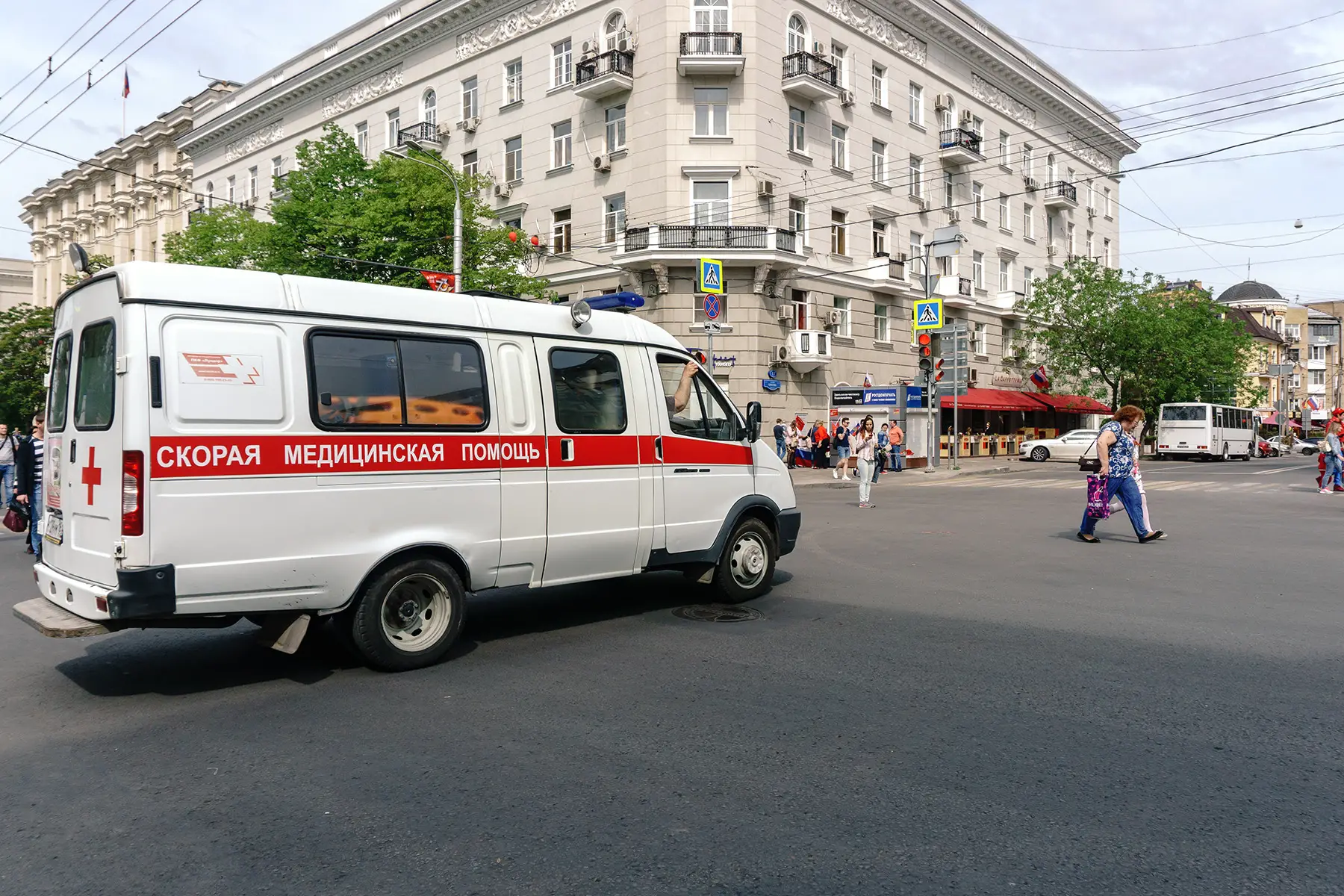Important notice from the Editor in Chief
Maintaining our Russian site is a delicate matter during the war. We have chosen to keep its content online to help our readers, but we cannot ensure that it is accurate and up to date. Our team endeavors to strike the right balance between giving information to those who need it, and respecting the gravity of the situation.
Russia has a long history of state-run mental healthcare, but the system has changed significantly in recent decades. Today, mental health services are available through both public and private providers, although quality and accessibility can vary depending on location. In major cities like Moscow and St. Petersburg, expats can usually find English-speaking professionals in private clinics, while public services are more limited and often delivered in Russian.
To help you understand how to access mental healthcare in Russia, this guide explains the following:
- How does mental healthcare work in Russia?
- How to access mental health services in Russia
- Insurance for mental healthcare in Russia
- Psychologists, psychiatrists, and therapists in Russia
- Drug and alcohol services in Russia
- Services dealing with eating disorders in Russia
- Services in Russia for children and young people
- Emergency support and crisis lines in Russia
- Useful resources
How does mental healthcare work in Russia?
Mental healthcare in Russia is primarily delivered through the public healthcare system, overseen by the Ministry of Health. Services are generally free or low-cost for Russian citizens and permanent residents through the Compulsory Medical Insurance (OMS) system.
This coverage includes consultations with psychiatrists and treatment in psychiatric hospitals, but does not always extend to therapy with psychologists or psychotherapists unless those services are provided in state-run facilities.
Is there a stigma around mental health in Russia?
Mental health remains a sensitive and often stigmatized topic in Russia. Although awareness has grown in recent years (particularly among younger generations) many people still associate mental illness with weakness or instability. Older attitudes shaped by the legacy of Soviet psychiatry, where diagnoses were sometimes used for political purposes, have left a lingering mistrust of psychiatric care.

As a result, many Russians may avoid seeking help unless symptoms become severe. That said, cultural perceptions are slowly evolving, especially in urban areas, where therapy is becoming more normalized and mental wellness is increasingly discussed in public forums and online spaces.
How to access mental health services in Russia
For expats, access to public mental health services depends on their residence status and insurance coverage. Those who contribute to the Russian healthcare system (for example, through employment) are usually entitled to public services via OMS. However, public mental health care may be limited in English — making private care a more practical choice for many foreigners.
The private sector offers greater flexibility, shorter wait times, and access to multilingual specialists, but treatment costs must often be paid out-of-pocket or reimbursed through private insurance. Psychiatrists, psychologists, and psychotherapists are all available privately, though licensing standards and titles may vary from what international patients are used to.
If you want to see a psychotherapist, you can ask your general doctor to give you a referral. You can also contact an outpatient mental health clinic or call the psychiatric department of a hospital. Alternatively, you can call one of Russia’s psychological help hotlines, where you will receive more information on mental health services in your area. Notably, free state clinics and hotlines don’t require referrals.
Some private clinics require a doctor’s referral while others do not. In addition to a referral, you will need to bring your passport and proof of health insurance with you. You will also need to fill out new patient paperwork during your first visit.
Insurance for mental healthcare in Russia
Free public health insurance is available to Russian citizens and residents, and this covers mental health services. However, if you are a non-resident, then you might not qualify for state-funded health coverage. In that case, you will need to take out private health insurance.
Psychologists, psychiatrists, and therapists in Russia
In Russia, psychologists, therapists, and psychiatrists are all distinct professions. A psychologist is not considered a doctor, but more of a counselor, and they may or may not have formal education. Note that a psychologist does not prescribe medication.

A psychotherapist, on the other hand, is considered a doctor and has formal education. Psychotherapists can prescribe medication and are more likely to specialize in an area. For example, a psychotherapist might only work with a specific mental health disorder or a specific group of people.
Meanwhile, a psychiatrist has medical education, specifically on the treatment of mental health disorders with medicine. Psychologists, psychotherapists, and psychiatrists often work together to come up with a treatment plan for patients.
As mentioned, public health insurance covers mental health services in Russia. However, private health insurance plans may differ in what they cover, so it is best to call your provider and ask if they cover mental health.
Finding a therapist in Russia
It is important to be careful when choosing a therapist in Russia. Unfortunately, it is common to come across scammers or inadequate psychologists that do not have proper training. Therefore, make sure you ask about their education and background.
Here are a few directories that verify education before listing a therapist:
Unsurprisingly, you are more likely to find English-speaking therapists in Russia’s bigger cities, such as Moscow or St. Petersburg. Many clinics also list on their website whether English-speaking therapists are available. Just remember that state clinics will likely have longer waiting times.
During your first appointment at either a public or private clinic, you will have a chance to get to know your therapist, explain your situation, and ask any questions you may have. This is the perfect opportunity to see if you can work together.
Drug and alcohol services in Russia
While drug and alcohol addiction services are available in Russia, they vary significantly. Some clinics offer traditional approaches, viewing drug dependence as a personal failing rather than a disease. Traditional treatment includes going cold turkey at inpatient clinics.
Other clinics, meanwhile, offer a combination of medication and therapy. Due to the stigma surrounding mental health, anonymous treatment is also available.
Options include outpatient or inpatient clinics, as well as in-home services. Treatment plans include a combination of coding, detoxification, hypnosis, psychotherapy, and drugs that block the effects of the addictive drug. Prices will vary depending on the service and treatment plan.

There are also several support groups for those struggling with addiction, including:
- Al-Anon – support groups for family/friends of those struggling with addiction
- Alcoholics Anonymous Russia
- Narcotics Anonymous Moscow
- Online Narcotics Anonymous Groups – groups meet online via Zoom
Services dealing with eating disorders in Russia
Under Russian law, eating disorders are on the list of services covered by public health insurance. However, private health insurance plans vary in what they cover. The process for accessing these services is the same as it is for general therapy.
Treatment typically lasts between seven and 14 days and usually involves psychotherapy and sometimes medication. You can ask your general doctor or a therapist to refer you to a specialist for treatment. Alternatively, you can reach out to support groups that can also connect you with appropriate resources. Here are a few support groups:
Services in Russia for children and young people
Some mental health clinics are specifically for children or teenagers only. For treatment purposes, a child is anyone under 12 years old. Parents can sign their children up for therapy if they are under 12. If the child is older than 12, the child’s consent, in addition to the parent’s consent, is needed. Treatment usually involves a mix of individual therapy for the child and family therapy.
In order to see a child or teen psychologist, you will need a referral from your child’s pediatrician. You will also need your child’s birth certificate, your child’s health insurance, and your (or the legal guardian’s) passport.
Outpatient care at your child’s home is the most common method of treatment. A psychologist will only recommend hospitalization for a child if it is absolutely necessary for medical reasons and there are no other options. Children and teenagers that are sent to a psychiatric care home are allowed to have their parents visit them, and sometimes their parents can also live there.
There are also services available for parents to assist with caring for children with mental illnesses or disabilities. The Psychological Center in Moscow can also help connect you with the appropriate specialist.
Emergency support and crisis lines in Russia
Russia offers a range of national and regional helplines for mental health emergencies and emotional support.

General emergency services
- 112 – nationwide emergency number for police, ambulance, or fire
- 103 – direct line for ambulance and medical emergencies (mobile-friendly)
Mental health crisis support
- National Psychological Help Hotline: 8 800 333 44 34
A toll-free national line offering confidential emotional support - Emergency Psychological Assistance (Ministry of Emergency Situations): +7 (495) 989 50 50
Available 24/7 for immediate psychological aid via trained specialists - Moscow Mental Health Crisis Line:
• Landline: dial 051
• Mobile: 8 (495) 051
Specialized support lines
- Suicide and Emotional Distress Helpline (Moscow): (495) 625 31 01
- Children and Youth Helpline (nationwide): 8 800 2000 122
Confidential support for children, teens, and parents - Domestic Violence Hotline (St. Petersburg-based): (812) 327 30 00
- Addiction and Substance Abuse Helpline: 8 800 700 50 50
Useful resources
- Ministry of Health of Russia – provides the latest news and hotlines concerning mental health services in Russia
- EMC – allows you to search for doctors in Russia based on your specific needs






